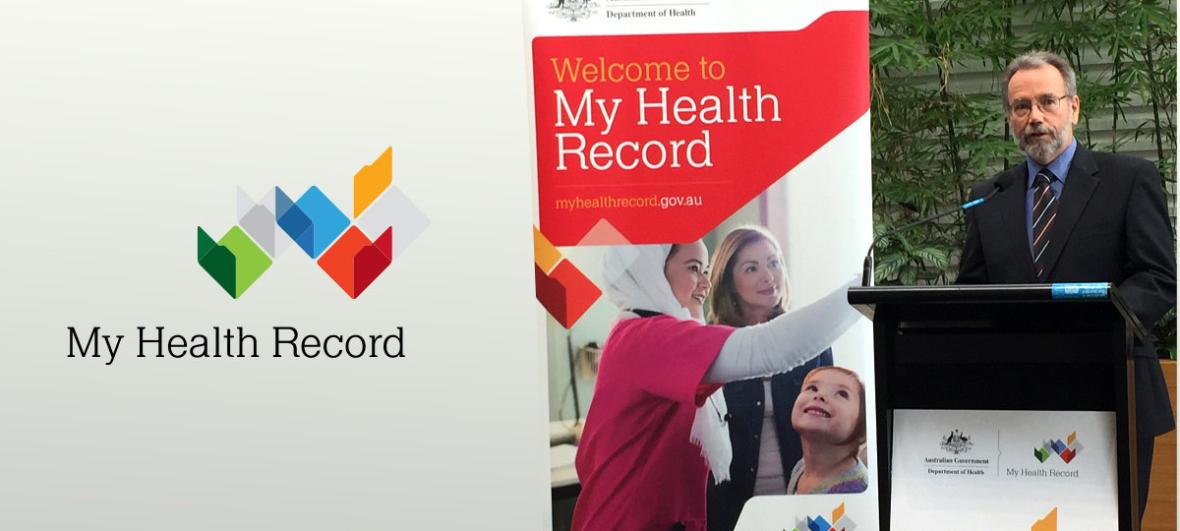"My Health Record will definitely help ... There is no question."
Published 27 February 2018
Dr Michael Crampton was involved in the Nepean and Blue Mountains opt-out trial of My Health Record and has followed its evolution over the past few years.
My Health Record is the beginning of a journey towards really safe and smart health information.

Dr. Michael Crampton
A lot of my patients who have been through the opt-out trial still don’t know they’ve got a My Health Record. But there are also those who do.
Effectively 95% plus of those who come through the practice I'm in have a My Health Record. It means there is information, which is loaded up on it automatically, like medications and so on.
If they’ve been in hospital, we can generally find their discharge summary on it. That provides some impetus for us to load information onto it as well.
The first thing I like about My Health Record is that it’s actually developing. It’s actually progressing. The system is doing some things with the information that’s put in there. It’s heading down this curation of the information pathway.
I like the fact that there's clearly work happening on the record system.
The second thing I like, because it’s the most critical thing for managing patient safety, is this – there is medication information that gets there from multiple sources.
That’s good and bad because while there is lots of inputs into the list, we don’t really have current medications being used highlighted. We've just got what’s been prescribed. So it still takes some work for the user to sift through the medicines information. But nonetheless, it’s there, and it’s much better to have a subset of medicines to choose from, to work out what someone is taking, rather than no knowledge at all.
The third thing I like is the allergy information. However, the allergy information comes from different sources.
Some of the information is incredibly factual, like this drug was prescribed for you. Some of the information is a bit more subjective, like you're allergic to this thing.
There's no question that My Health Record will be valuable for the factual information.
- When was I in hospital?
- Was it my left leg?
- Did I actually have my appendix out?
- What was the medication they prescribed?
For those people who aren’t very focussed on their health, or for those who are so overloaded with their health issues they can't remember much of the detail, that factual information will be there.
The information based on deductions, like diagnoses and allergies will be there as well. You just have to be a little bit more cautious about accepting it.
The fact that someone is put down as having an allergy to, for example, a penicillin – you still have to treat that with a little bit of respect, a little bit of reflection, about who it’s come from and what actually happened.
Nonetheless, it’s better to be able to say to the patient – “Oh, the system says you're allergic to penicillin” – rather than to have to deal with a conversation along the lines of – “I had a drug once that I had a bad problem with. I don’t remember what it was, but it was really nasty and I ended up in hospital.”
When we have one clear, accessible, current and accurate medicines list for every patient it will overcome a lot that goes on. Another example is, older patients who are not necessarily medication smart and who are prescribed and dispensed many generic drugs there is a lot of medication confusion. For example, they don’t know that medicines have a generic name and a brand name. Doctors know the different names of the one drug. Patients don’t know that. It just causes grief.
My Health Record will definitely help with all of this. There is no question.
I’m positive about this, but I want to be balanced about it. Because it is not “the most you beaut, God’s answer to the world” system yet. But if anyone stops developing it, that’s really bad news.
My Health Record is a long-term journey and I want to see it continue on.